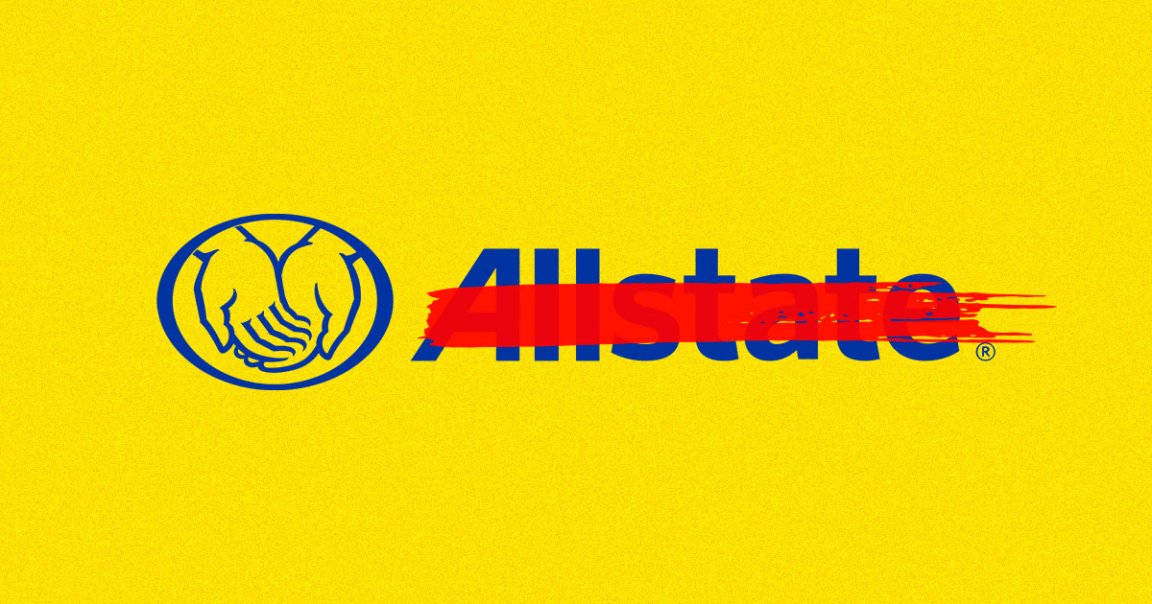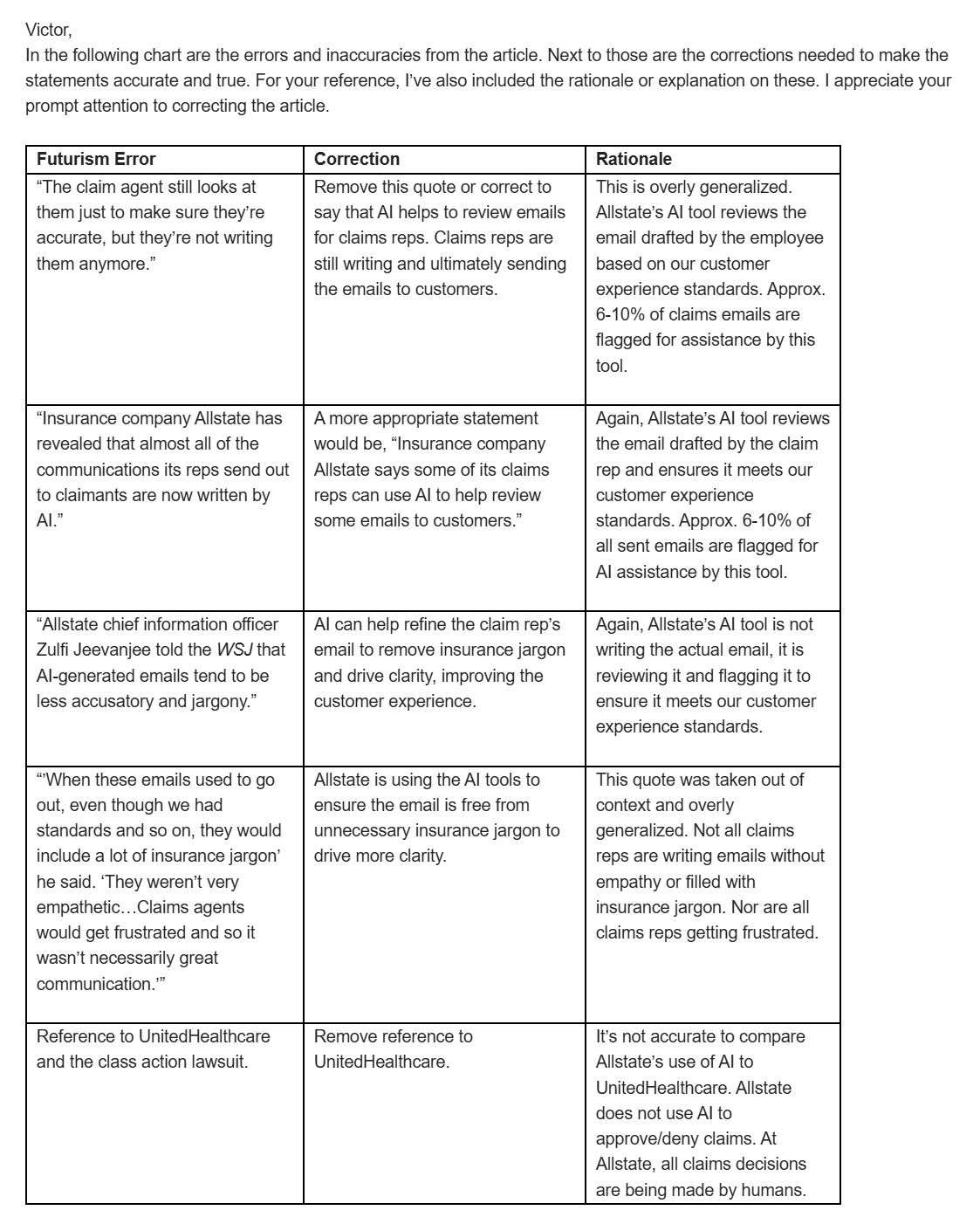
We were struck this week when the Wall Street Journal reported that Allstate, a major insurance company, had largely handed over the task of writing claims emails over to an AI system.
The WSJ‘s source wasn’t remotely controversial; it was Allstate’s own chief information officer, Zulfi Jeevanjee.
“The claim agent still looks at them just to make sure they’re accurate, but they’re not writing them anymore,” Jeevanjee enthused to the newspaper.
“When these emails used to go out, even though we had standards and so on, they would include a lot of insurance jargon,” he continued. “They weren’t very empathetic… Claims agents would get frustrated, and so it wasn’t necessarily great communication.”
It was a fascinating story about the incursion of AI into yet another industry, so we ran a quick blog on it and moved onto other things.
But then we got a genuinely bizarre email from someone on Allstate’s media relations team, claiming the WSJ‘s reporting was flawed and that the newspaper was on the verge of taking it down.
“I’m currently working with the Wall Street Journal to have it updated/removed due to the high number of inaccuracies,” the Allstate spokesperson told us, demanding that we delete our blog entirely.
For obvious reasons, that’s a ridiculous request. We told the spokesperson that we’d be happy to update the piece with additional comment from Allstate, but that we wouldn’t change our factual claims unless the WSJ did.
Later on, the WSJ did add a correction to its story — but only on two obscure points, about the number of insurance reps the company employs and the name of the vendor Allstate uses for estimating the cost of repairs.
Meanwhile, Allstate’s media team continued to badger us, sending a lengthy table of requested changes, many of which involved deleting or altering statements by the company’s own exec, Jeevanjee (they were also very unhappy with a comparison to UnitedHealthcare, another insurer that’s reportedly deployed AI to deal with claims.) In fact, they sent this preposterous table laying out exactly which quotes they wanted modified or removed:

To be clear, it’s not out of the ordinary for spokespeople to reach out to journalists to dispute factual claims, sometimes resulting in corrections. We’re all human, after all (or, at least, those of us who aren’t writing Allstate’s claims emails still are.)
But it’s an entirely different matter when a company requests that direct quotes by its executives be deleted wholesale. And frankly, we were baffled: Jeevanjee is the company’s CIO, so you’d expect that he’d know exactly how its employees were using technology. And his quotes — the “claim agent still looks at them just to make sure they’re accurate, but they’re not writing them anymore” — weren’t remotely ambiguous.
Flummoxed, we replied to Allstate seeking some clarity. Were they saying that Jeevanjee was lying when he made the remarks to the WSJ? Or that he was confused? Is he now claiming something different?
“We would like to correct how our Claims team uses AI tools,” the spokesperson replied, completely ignoring our questions. “Allstate employees are responsible for drafting and sending all customer emails, and they can choose to use AI tools to help improve clarity. Our employees are committed to helping restore our customers’ lives quickly with accuracy and empathy.”
Asked again why Allstate was so bluntly contradicting its own CIO, the spokesperson again ignored the question — in another email, we couldn’t help but notice, that sounded a bit like it might have been written with AI itself.
“As I mentioned, we would like to correct how our Claims team uses AI tools,” they said. “The information I provided you provides an accurate overview of how customer emails are drafted and sent and we are asking you to include that in any reporting on our use of AI.”
It’s hard not to speculate about what’s going on behind the scenes at Allstate. Was there a drastic miscommunication? Some sort of coverup of an actual policy?
But the most likely explanation probably has to do with this: Allstate is starting to realize, like many other large companies, that customers don’t like the idea of being offloaded onto a flawed and over-hyped AI system.
And as a result, when a newspaper reported that that’s exactly what it had been doing, its media arm panicked — and started making bizarre demands to journalists.
More on the story: Allstate Says Almost All Its Communications About Insurance Claims Are Done With AI Now